China-Russia Writers’ Dialogue with the Young Students of Renmin University of China: A Successful Event
DATE: 2024-06-22
Youth never fades, literature forever stays. On the evening of June 18th, the event of “China-Russia Writers’ Dialogue with the Young Students of Renmin University of China” was successfully held, sponsored by the Center for Translation and Study of World Literature and the School of Foreign Languages of Renmin University of China, and organized by the Russian Department of the School of Foreign Languages of Renmin University of China. The event invited distinguished writers from Chinese and Russian literary circles, including Li Er, writer and Chairman of the Beijing Writer’s Association, Zhou Min, Vice Chairman of the Beijing Writer’s Association and children’s literature writer, Jiang Zai, young writer and editor of the magazine October, Евгений Резниченко (叶夫盖尼·列兹尼琴科), Executive Director of the Russia Academy of Translation, Евгений Водолазкин (叶夫盖尼·沃多拉兹金), Russian writer and literary critic, Hина Лaшeвcкaя (尼娜·达舍夫斯卡娅), Russian children’s literature writer and violinist, Liu Hongbo, Professor at Peking University and translator of the novel Лавр (《拉夫尔》), as well as other writers from the Russian writers’ delegation. Writers from China and Russia, together with the young students from Renmin University of China made use of literature as a bond to jointly explore Sino-Russian literature and offered sincere wishes to the graduates who are about to embark on a new journey.
Professor Chen Fang, Dean of the School of Foreign Languages at Renmin University of China, extended a warm welcome to the writers and translators attending the event and offered sincere blessings to the students graduating in 2024. She noted that the recently established Center for Translation and Study of World Literature aims to create a space for dialogue between Chinese and foreign writers and translators, which is also the original intention of this conversation. Quoting Водолазкин’s messages when the center was established, she reaffirmed that “literature is the most honest and genuine testimony of a nation to itself, because literature is written by people for themselves, and it always engages in a very honest dialogue.”
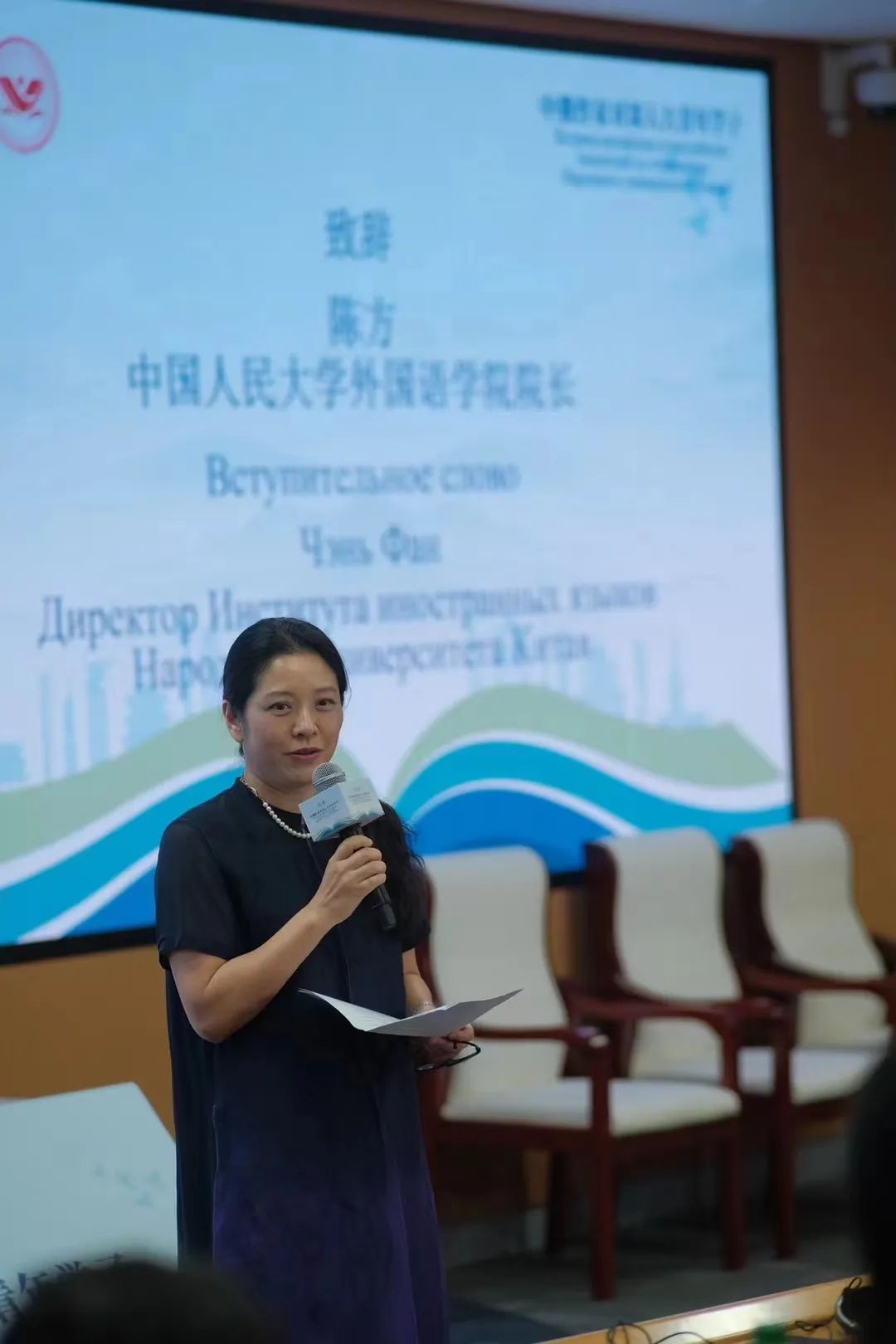
Mr. Евгений Резниченко, Executive Director of the Russia Academy of Translation, compared life to a round table in his speech, where various dishes could be chosen, and writers were the ones who prepare the “dishes of thought” for us. He held the beliefs that Chinese and Russian writers met with everyone present precisely because of their serious attitude towards life.
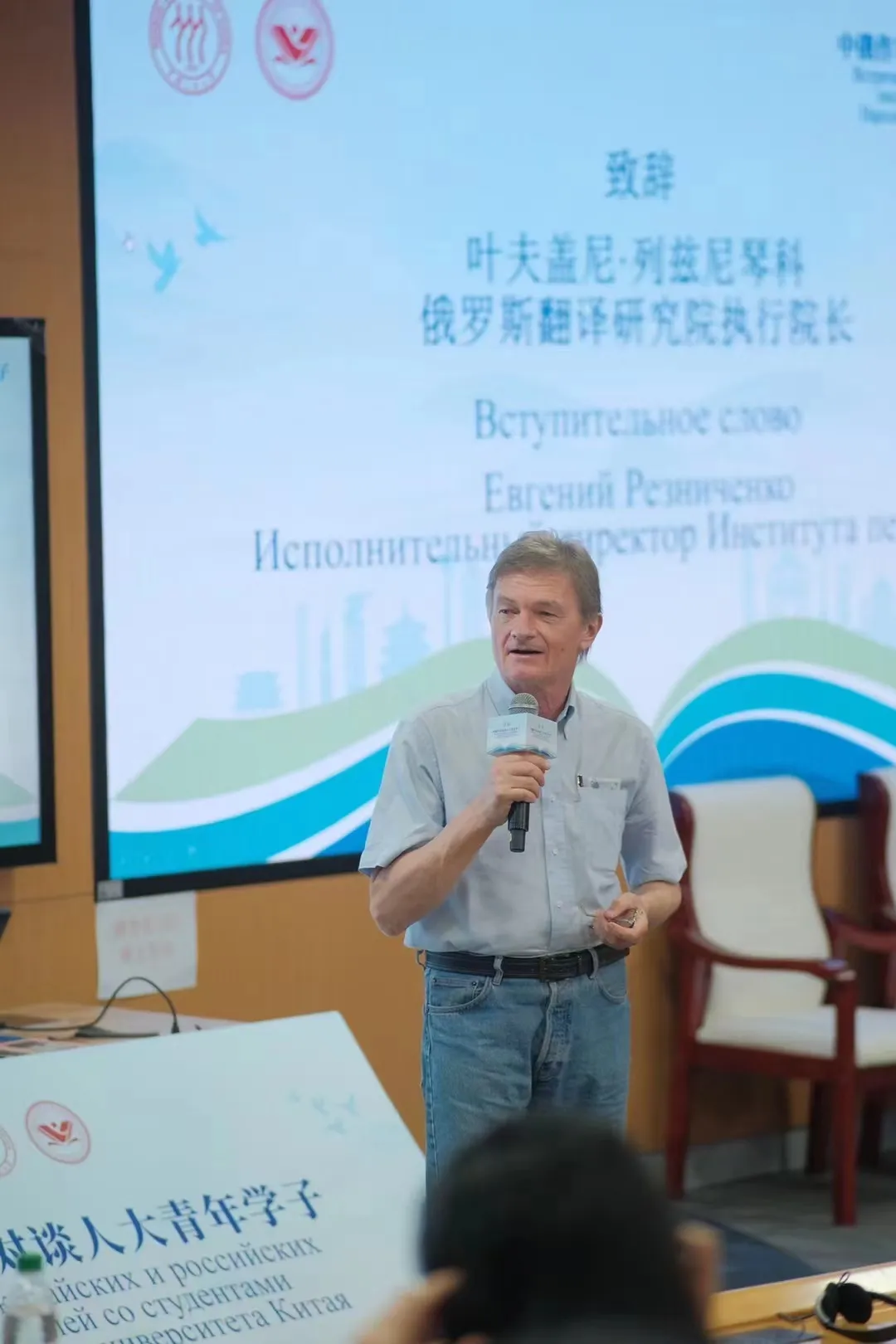
The golden month of June was also energized by the passion for literature. In a conversation themed “Literature, Time, and Eternity”, Associate Professor Jin Meiling of the Russian Department, along with writers Евгений Водолазкин, Hина Лaшeвcкaя, Li Er, Zhou Min, and Jiang Zai, engaged in an in-depth discussion on topics such as Chinese and Russian literature, the relationship between literature and human civilization, and the growth of young people. Russian writers shared their understanding and perceptions of Chinese literature, and also introduced classic works of Russian literature and these works’ contemporary development. Besides, Chinese writers shared their favorite Russian literary works. Some Chinese and Russian literary giants were repeatedly mentioned, such as Mo Yan, Lu Xun, Chekhov, and Pasternak, which reflects the deep emotional connection between Chinese and Russian literature. Евгений Водолазкин shared his concept of overcoming time when creating. Chinese writer Li Er discussed the intervention of literature in reality, sharing how writers influence our perception of the world through their words. Zhou Min elaborated on the topic of literature and the growth of young people, while Jiang Zai shared his thoughts on spiritual dilemmas. During the question and answer session, students and writers engaged in lively interactions. The conversation included discussions about literature itself as well as concerns about real-world topics, creating an enthusiastic atmosphere where students greatly benefited.
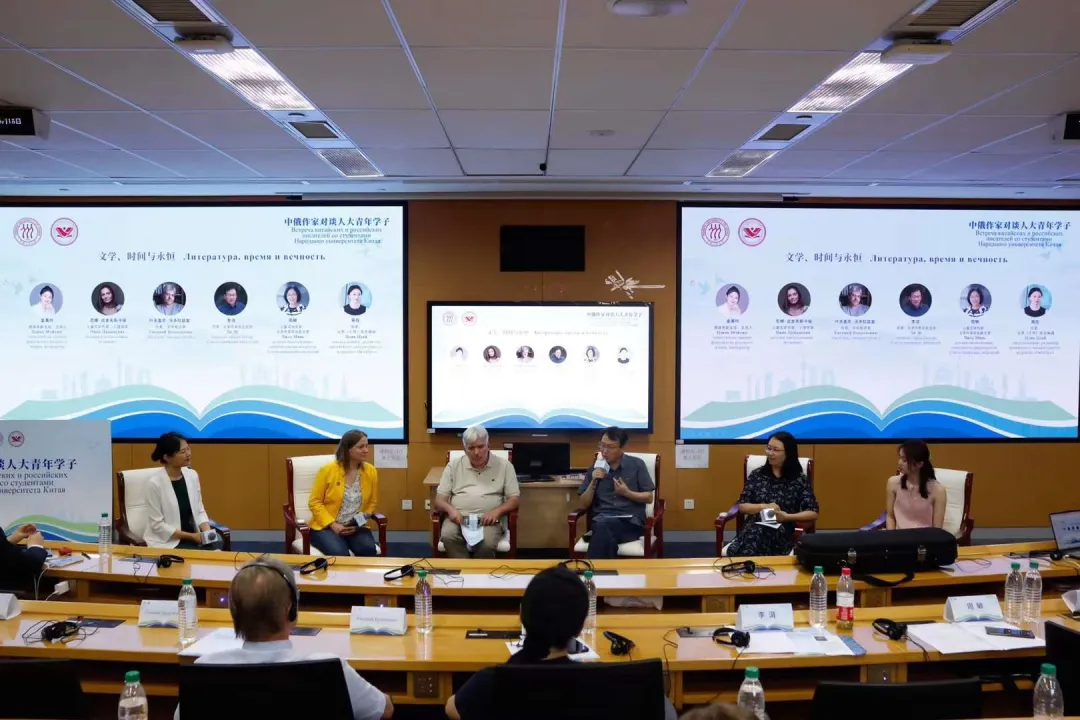
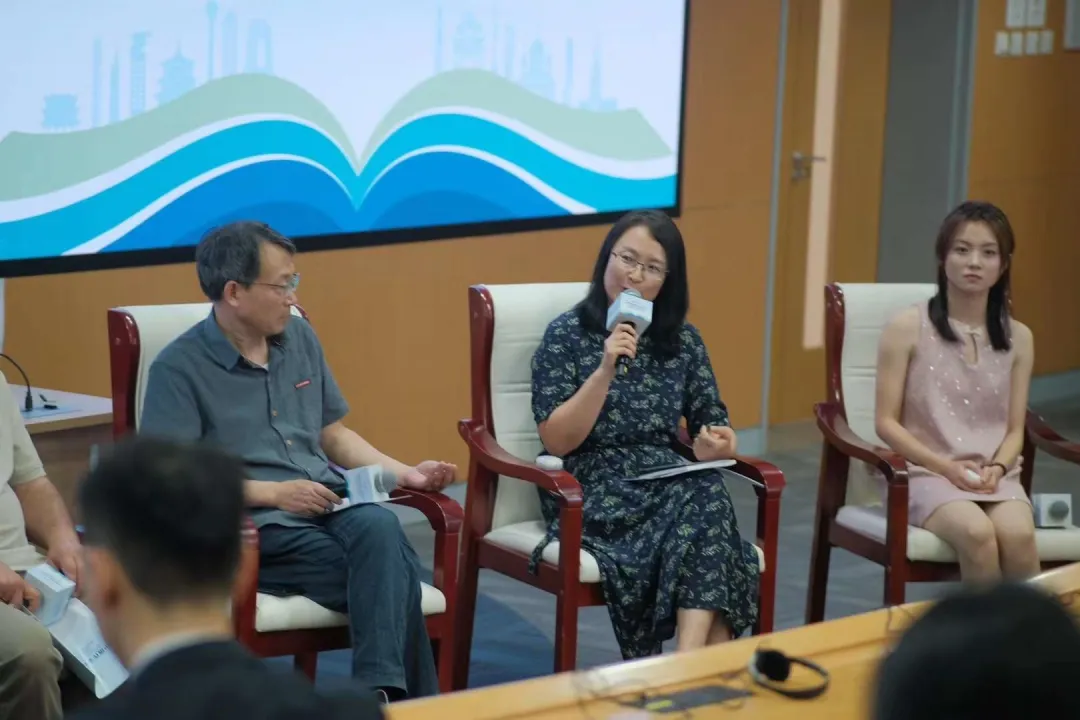
The conversation session was enriched with a variety of cultural and artistic performances. Students read translated excerpts from the classic works of several writers, sang songs such as Cимпа (《小宝贝》) and Вечер Бродит (《夜徜徉》), and even adapted Hина Лaшeвcкaя’s work Говорящий велосипед (《会说话的自行车》) into a stage play. Inspired by the atmosphere of these performances, the writers also came to the stage to perform. Hина Лaшeвcкaя’s violin performance brought the evening to a climax, and the impromptu recitation by Li Er from the final passage of Doctor Zhivago immersed the audience, leaving them savoring the moment for a long time.
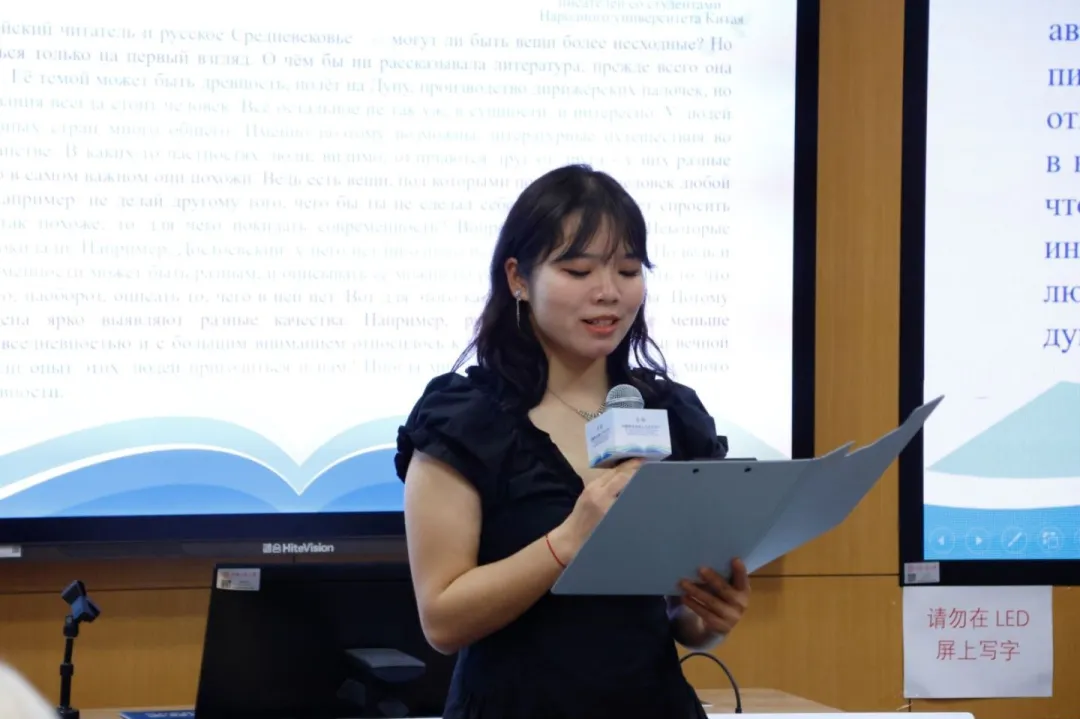
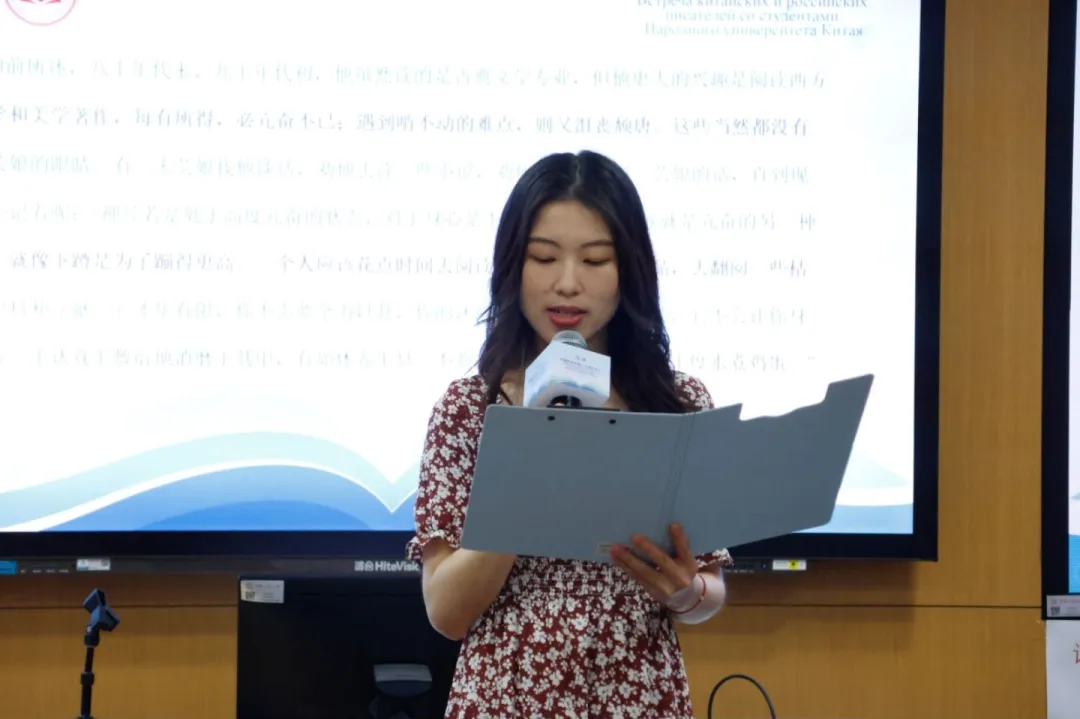
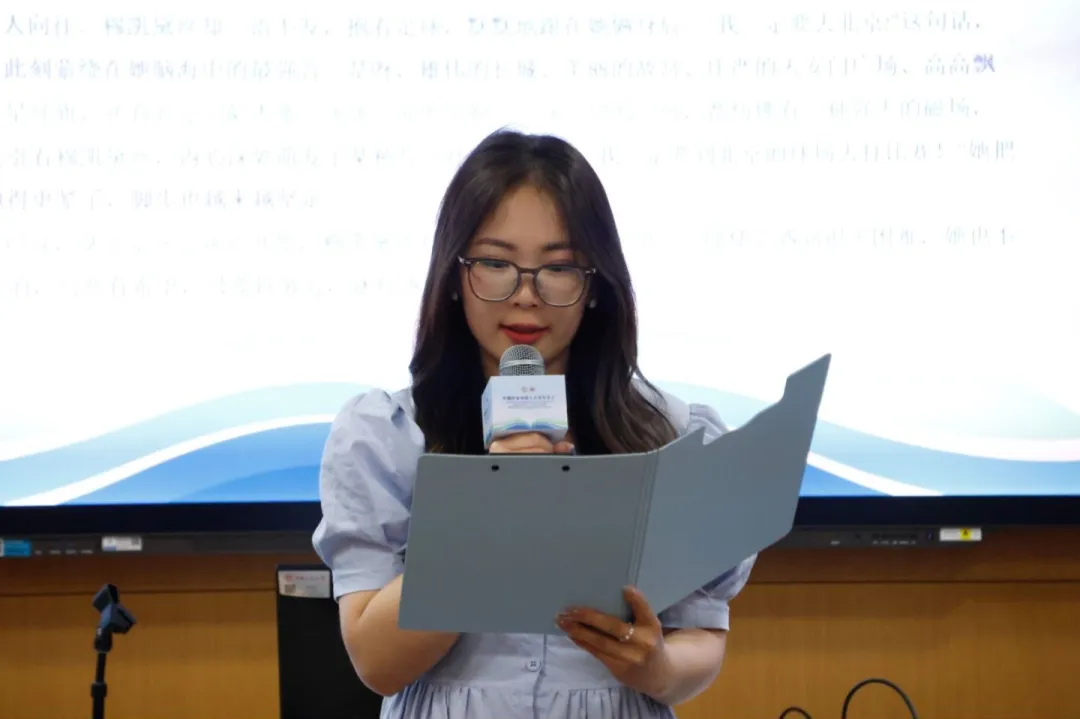
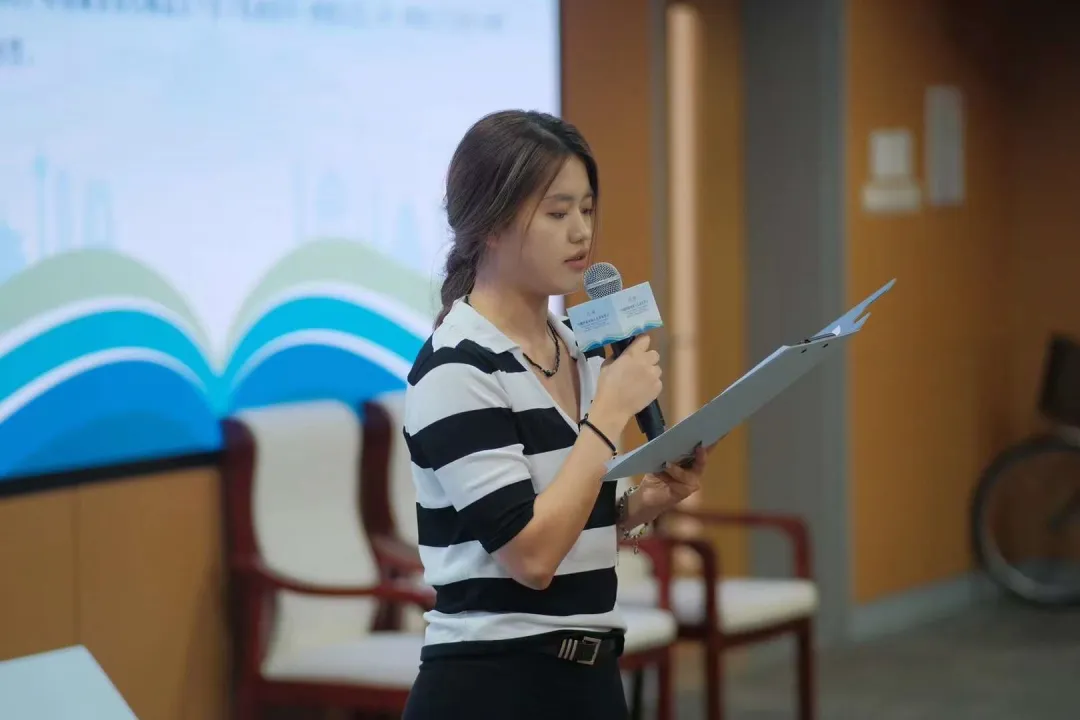
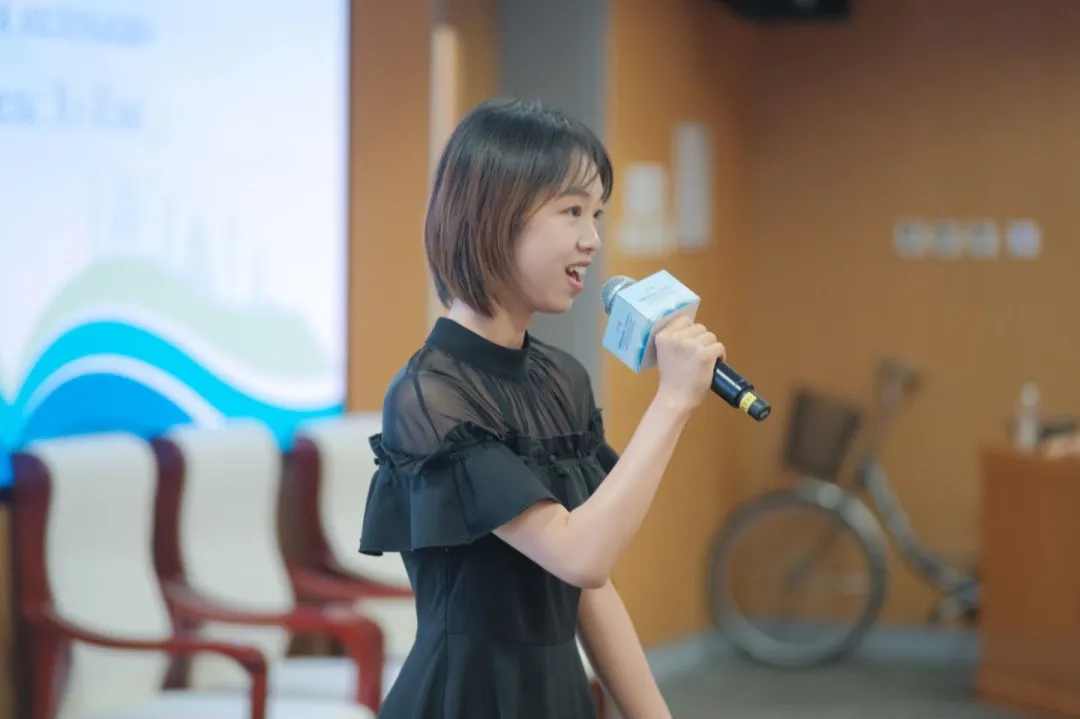
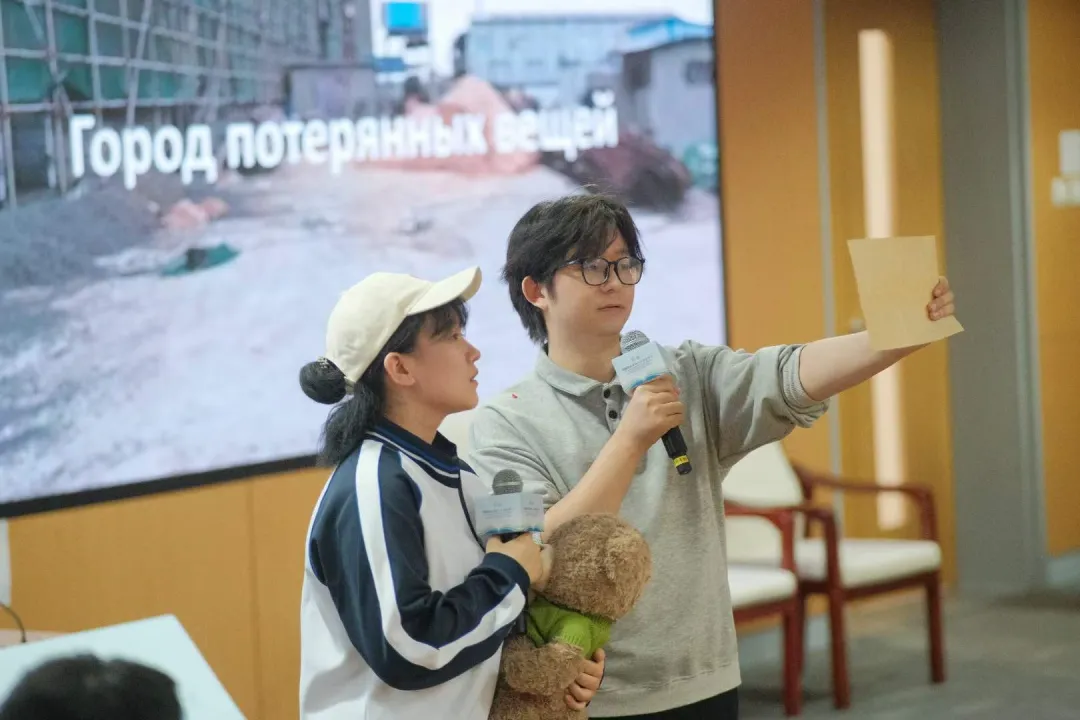
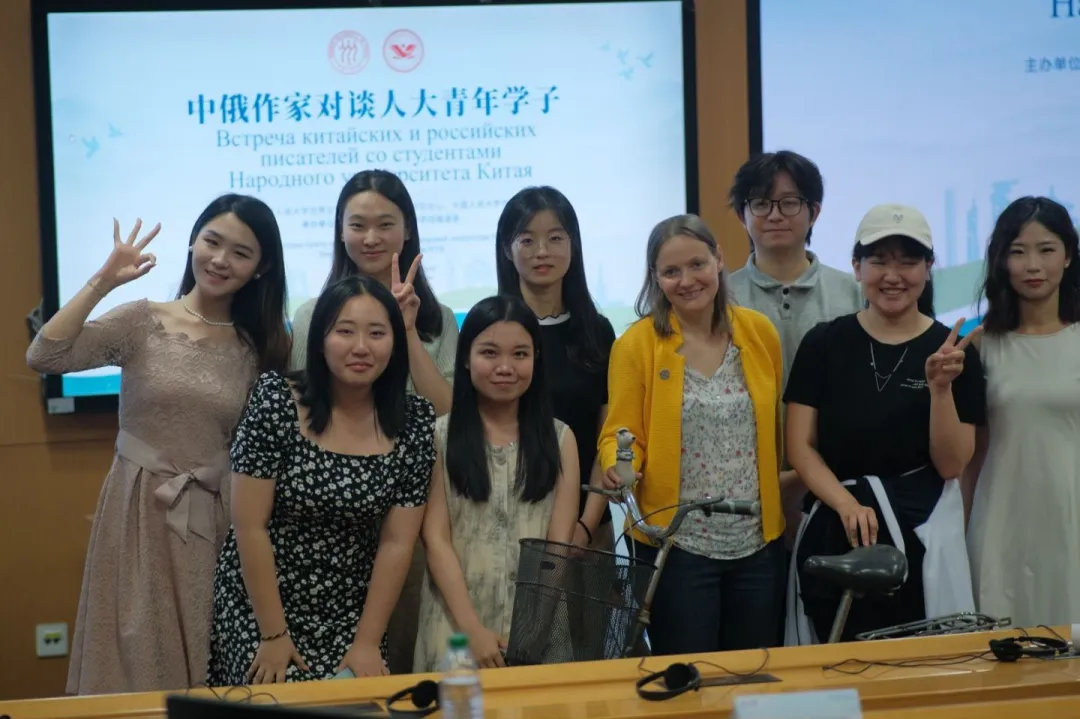
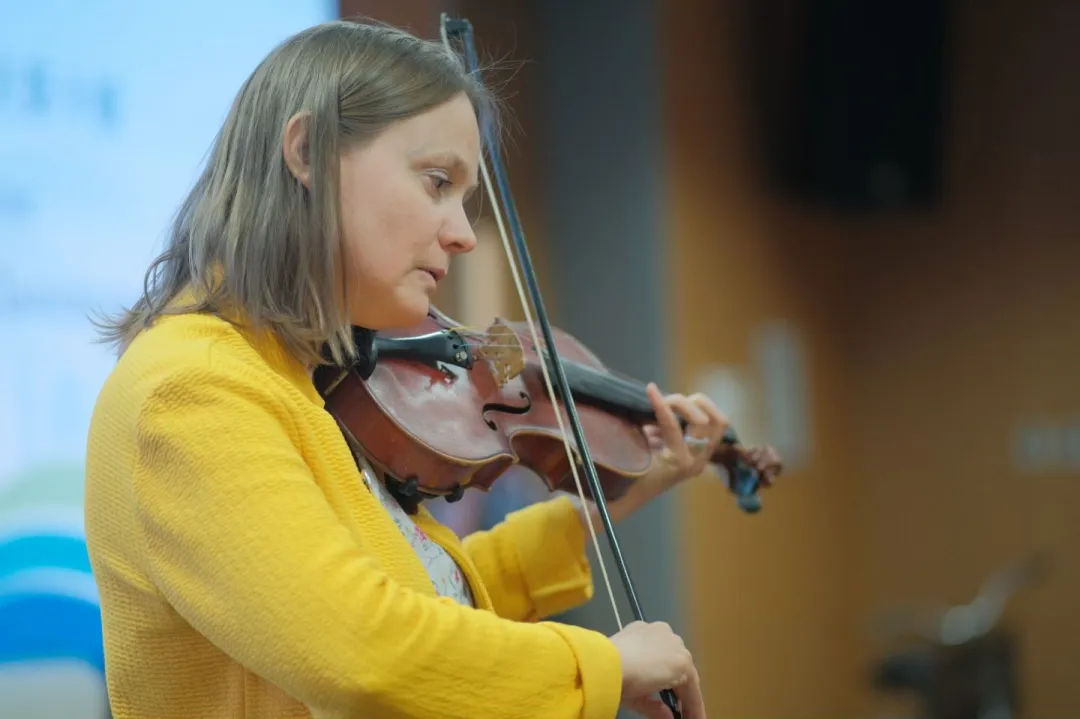
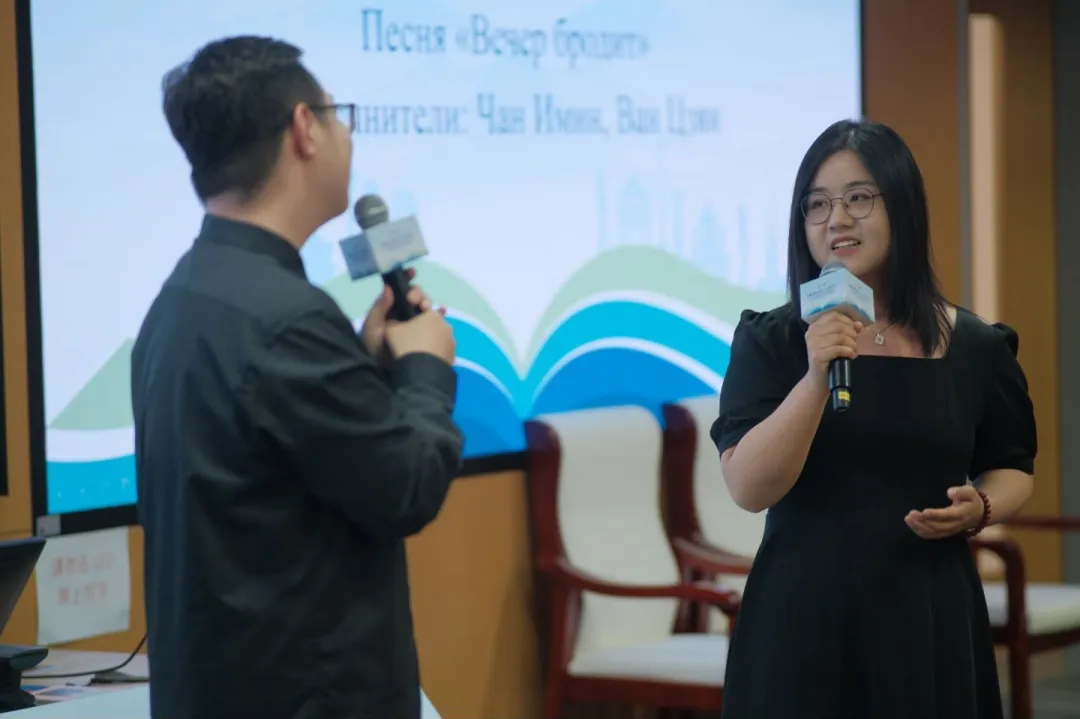
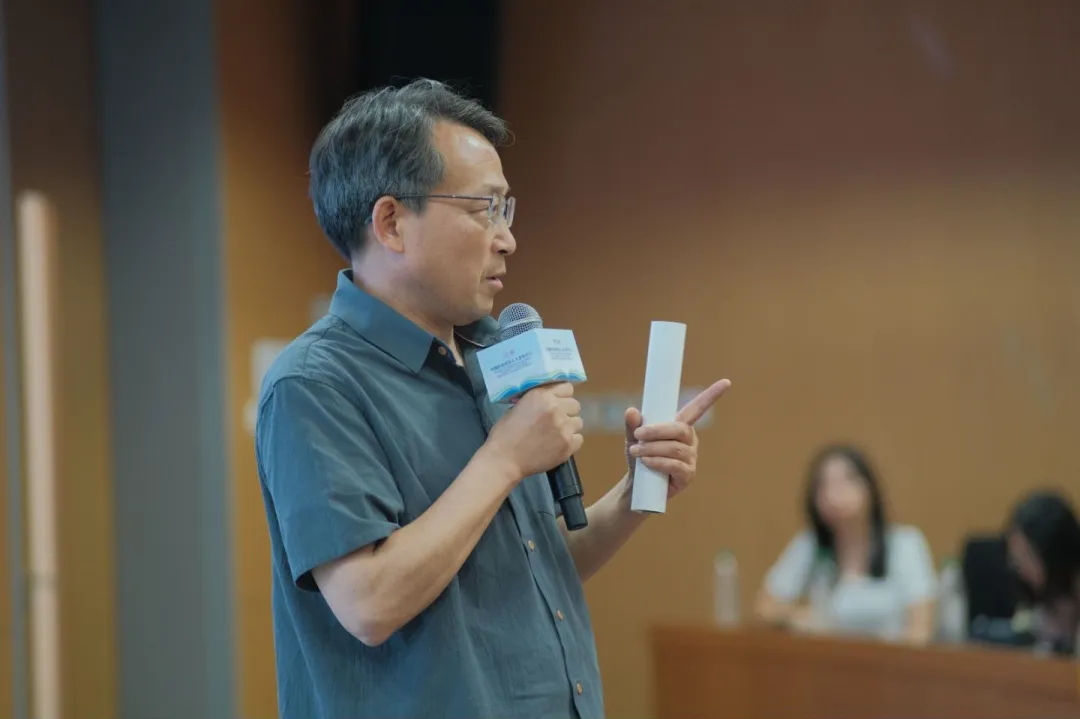
At the end of the event, the Chinese and Russian writers, along with Teacher Li Sha, the class advisor for the 2020 Russian undergraduates, also delivered heartfelt messages to the graduates.
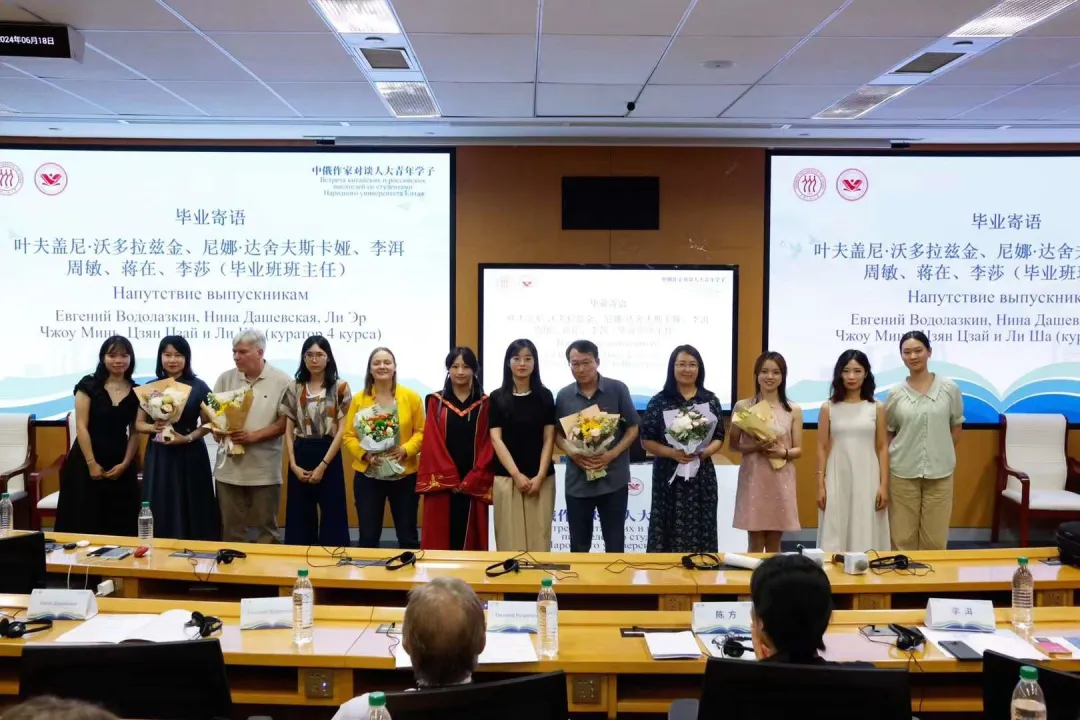
The event of “China-Russia Writers’ Dialogue with the Young Students of Renmin University of China” not only created an unforgettable memory for the audience and graduates present, but also served as a vivid example of cultural exchange between China and Russia. The Center for Translation and Study of World Literature and the School of Foreign Languages of Renmin University of China, have always deeply implemented the guiding principles of the important speech by the General Secretary Xi Jinping during his inspection and research at Renmin University of China. It is vital for us to focus on the common values of all humanity and the concept of a community with a shared future for mankind from the perspective of world literature, promote dialogue among Chinese and foreign writers, translators, and researchers on related topics, and foster cross-cultural exchange and mutual learning among civilizations, contributing the strength of Renmin University of China to continuously advancing the building of a community with a shared future for mankind.
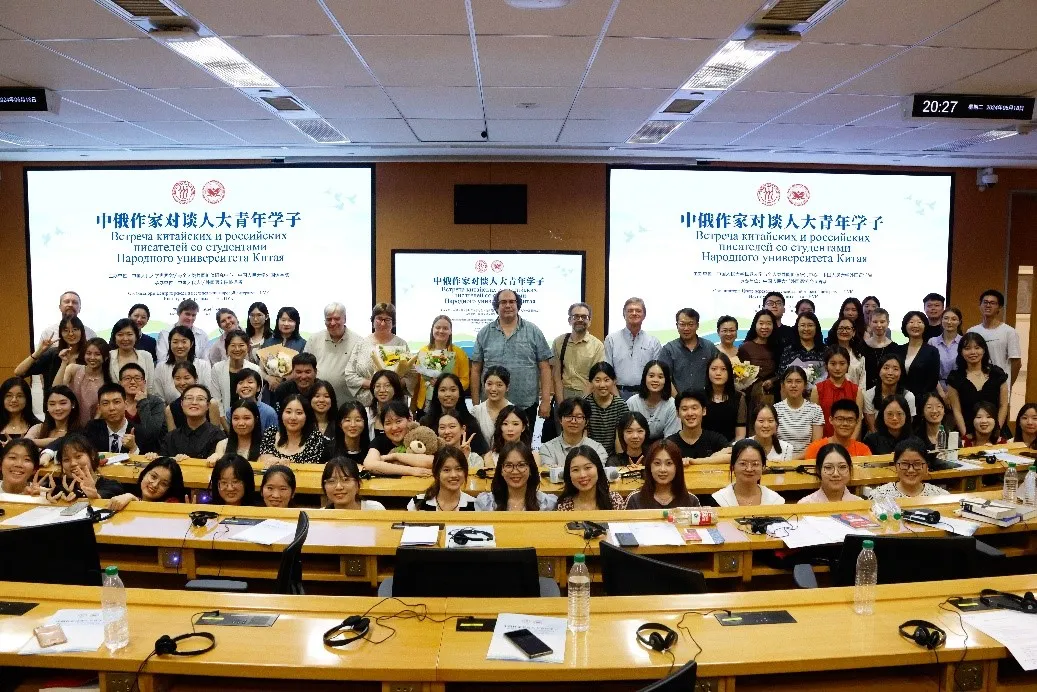
Written by: Wang Yan from the department of Russian of Renmin University of China
Photographed by: Zhang Luye and Hu Yingdan
Editor: Tang Ying
